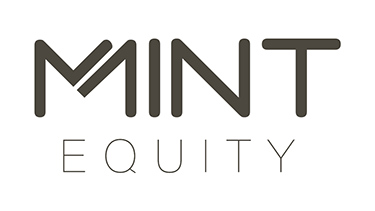What is a deposit bond?
A deposit bond or deposit guarantee is an alternative to a cash deposit, used in agreement with the vendor when a buyer does not have the cash available to pay the deposit on the sale of a property. Essentially, it’s a guarantee that cash is coming.
It is issued by an insurer for up to 10% of the purchase price and is lodged with the vendor’s solicitor as security. A deposit bond is an agreement that the insurance company will pay the full amount of the deposit to the vendor if the buyer fails to complete the transaction.
No money changes hands as part of the deposit bond and purchase funds are instead paid at the time of settlement. Therefore, a deposit bond does not replace the deposit but rather is a guarantee that it will be paid at a future date.
How it works for buyers
Buyers should always check with the vendor, real estate agent and, if applicable, the developer about using a deposit bond before getting one.
Although deposit bonds are available to any Australian permanent resident, registered company, trust or self-managed superannuation fund, not every buyer can use one. Buyers will still need to pay the full purchase price at settlement so in order to apply for a deposit bond you must be able to prove you will have the funds available at settlement.
For example, a buyer might have been pre-approved for a home loan of 100% of the purchase price plus costs but not have enough savings to pay the deposit. A deposit guarantee can be used until the lender provides the full loan amount on settlement.
Another situation might be that the buyer has cash in a high interest account and it is financially beneficial to leave it there whilst waiting for settlement. The buyer needs to show that the cash will be available on settlement.
Buyers can apply for deposit bonds from specialist lenders, banks or other providers. You will need to provide a copy of the Contract of Sale, a copy of the home loan approval, evidence of funds and a copy of any grant letters.
A guarantee certificate will be produced that is held by the seller’s solicitor until settlement and then at settlement the buyer pays the full purchase amount, including the deposit.
Pros of a deposit bond
- Cost-effective compared to bridging finance
- Convenient – can buy straight away
- Flexible - can be used at auctions or buy off the plan
- Short or long term deposit guarantees can be used to secure properties with settlement terms of up to 48 months
Cons of a deposit bond
- Fees and charges apply and may include an administration fee if the deposit guarantee is refunded
- Can be difficult to get approval from both providers and the vendor
- You are required to come up with the funds required for the purchase at settlement
How it works for sellers
The deposit bond is held by the seller’s solicitor and is used only if the purchaser defaults on the terms of the purchase contract. The seller then has the right to claim on the deposit bond and the insurer pays the guaranteed amount.
How a deposit bond can help first home buyers
First home buyers are not always in a position to provide the full 10% deposit upfront, particularly if they are seeking help to secure the property using a family guarantee in addition to government grants.
A deposit bond can help first home buyers overcome the biggest hurdle to owning a home, saving for the deposit, and is a cost-effective way to arrange a deposit without touching savings.
Buying off the plan property with a deposit bond
Deposit bonds can be helpful when the settlement is years away and tying up cash for a long period of time is difficult. It means your cash savings are still accessible during the years you are waiting for completion.
How much do I need to borrow from a bank if I use a deposit bond?
You will still need to come up with the full purchase price plus costs at settlement. You will need to replenish the guarantee at settlement by way of cash or a loan covering 100% of the purchase price.
There is no set amount you must borrow from a bank to use a deposit bond so it’s best to speak to your bank or mortgage broker about your specific circumstances.
Costs of a deposit bond
There is a once-off-fee for the buyer associated with a deposit bond, which depends on the amount of money it is being issued for and for how long. Generally, the fee will be 1.2-1.3% of the deposit amount.
If the buyer fails to complete the transaction the insurer will seek reimbursement from the buyer for any money paid as part of the deposit bond, as well as other costs and expenses.


